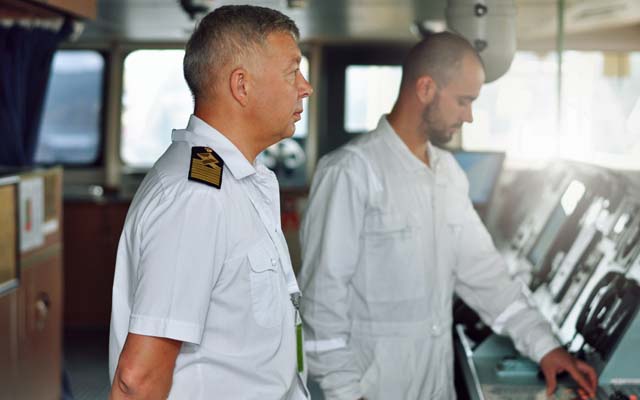New results from a behaviour-focused sustainable shipping trial undertaken by Ridgebury Tankers are said to have raised the bar for maritime decarbonisation projects, with ships’ crews making fuel-saving decisions 21% more often.
The six-month trial achieved significant emissions reductions without requiring hardware retrofits on the vessels or additional data sourcing. The technology from UK company Signol supported Masters and Chief Engineers across four of Ridgebury’s ships – managed by German ship manager BSM – to shift their behaviour towards more fuel-efficient decisions. The platform leverages 17 separate behaviour change techniques which prime individuals to think differently about fuel efficiency and decarbonisation so that they are more proactive in taking available opportunities to reduce energy usage.
For the trial, Signol and Ridgebury Tankers identified three operational processes where crew members had opportunities to save fuel, including using the main engine efficiently given the operating conditions, and using auxiliary engines efficiently given the demand for power on board. Crew members implemented fuel-saving decisions 21% more often after receiving personalised, realistic goals from Signol and engaging with behaviour change techniques delivered through multiple channels, including specifically timed emails and a web app personalised for each user.
Ridgebury crew members voluntarily enrolled in the trial showed consistently high engagement levels throughout, driven by strong collaboration between Signol, Ridgebury and BSM management teams, who enthusiastically supported the initiative.
Harriet Johnson, Head of Maritime, Signol, said: “The maritime industry is increasingly focusing on promoting operational efficiency to reduce its environmental impact, and Ridgebury’s fuel-saving demonstrates how ship owners and managers can harness the power of their crews and ensure each individual plays their part. We are delighted that the strong spirit of collaboration between Ridgebury, BSM and Signol produced such results, adding more weight to our conviction that ‘the human factor’ is key to immediately reducing ships’ emissions without the capital-intensive, longer-term solutions which will decarbonise the sector in the future.”
Ridgebury’s fuel-saving achievement builds on the success of Signol’s previous trial with Bernhard Schulte Shipmanagement in 2023 which showed a similar fuel saving across 23 ships over four months, an analysis later validated by an academic peer review process. Together, both results showcase the potential for individual seafarers to help move the dial on sustainability efforts and prove that behaviour change alone can lead to a material reduction in ships’ energy demand, CO2 emissions and operational costs. These results are significant for the maritime industry, as the sector strives to go green in line with the IMO 2050 strategy.
Opportunities to improve fuel efficiency are particularly important as the EU ETS extends to the maritime industry from January 2024. The scheme will use fuel consumption to calculate EU emissions allowances and the associated cost for ship owners.
Image: Behaviour changes from ships’ crew can result in significant fuel savings (credit: Signol/Shutterstock)



